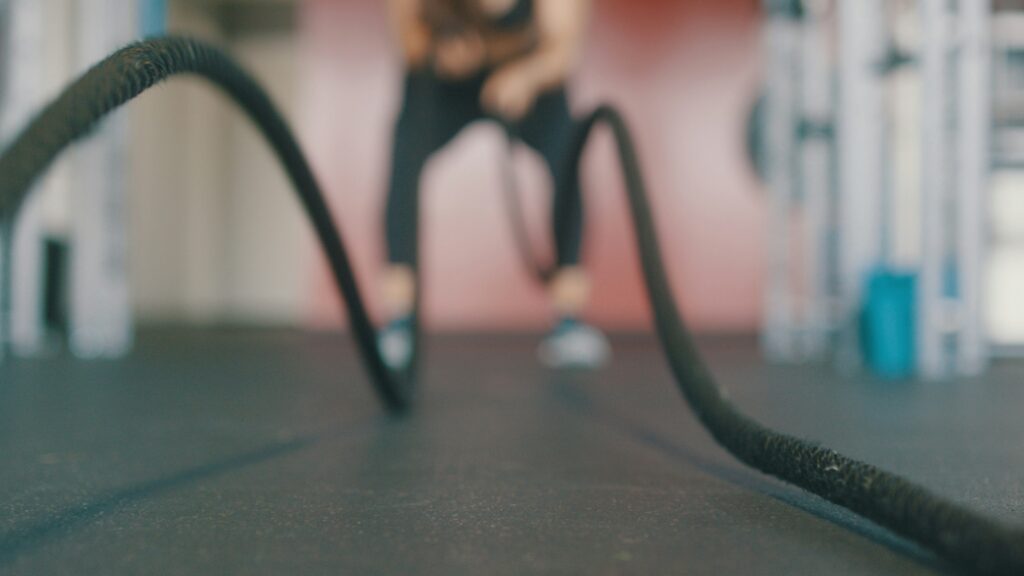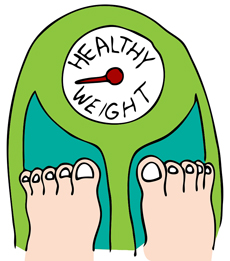Quick Weight Loss Tips Without Exercise: A Comprehensive Guide
Introduction to Quick Weight Loss
Understanding the basic principles of weight loss without relying on strenuous physical activities is essential for anyone looking to shed pounds sustainably. This section demystifies weight loss and provides a solid foundation for the rest of the discussion.
Table of Contents
Understanding Weight Loss Fundamentals
Weight loss occurs when your body expends more calories than it consumes. The key to losing weight without exercise lies in creating a calorie deficit through dietary changes and lifestyle adjustments, not through intensive workouts.
Myths vs. Facts: What You Need to Know
Many believe that weight loss without exercise is impossible, but this is a myth. Effective weight management can be achieved through strategic dietary practices and other non-exercise activities.
Quick Weight Loss Tips Without Exercise
Optimize Your Diet for Maximum Fat Loss
Achieving weight loss without exercise primarily hinges on dietary modifications. Here’s how you can optimize your diet for maximum fat loss:
- Focus on Macronutrients: Adjust your intake of macronutrients—proteins, fats, and carbohydrates. High-protein diets increase feelings of fullness and the amount of calories burnt during digestion. Include lean meats, legumes, and high-protein vegetables in your meals.
- Cut Down on Sugar and Refined Carbs: Reduce your consumption of sugary snacks, beverages, and refined carbohydrates. These foods cause blood sugar spikes and can lead to weight gain if not burned off, especially without exercise.
- Eat Whole Foods: Base your diet around whole foods. These naturally filling options help control calorie intake.
- Plan Your Meals: Plan meals to avoid impulsive eating and to ensure nutritional balance. Preparing what and when you’ll eat during the day helps manage hunger and reduces the chances of overeating.
Hydration: The Secret Ingredient
Hydration plays a critical role in weight loss:
- Increases Metabolism: Drinking water can accelerate your metabolism temporarily, helping you burn more calories throughout the day.
- Appetite Suppression: Often, our bodies confuse thirst for hunger. Drinking water before meals can lead to reduced calorie intake.
- Supports Detoxification: Water helps flush out waste products, making your body cleaner and ready to lose weight efficiently.
Mindful Eating Practices
Mindful eating is a practice of being fully aware during eating:
- Eat Slowly: Take time to chew your food thoroughly, which can lead to better digestion and reduced intake.
- Eliminate Distractions: Avoid eating while watching TV or on your computer. This can prevent overeating by making you more aware of how much you’re consuming.
- Listen to Your Body: Learn to understand your body’s hunger and fullness signals to avoid overeating.
Boosting Metabolism Naturally
Apart from diet and hydration, boosting your metabolism is vital:
- Spice Up Your Meals: Adding spicy foods like pepper can increase your body’s metabolism.
- Protein is Key: As mentioned, protein has a high thermic effect which means your body uses more energy to digest it than other macronutrients.
- Cold Water: Drinking cold water forces your body to use energy to heat it to body temperature, burning more calories in the process.
Implementing these strategies effectively contributes to weight loss without the need for exercise. Adjusting what, when, and how you eat, along with ensuring proper hydration, can significantly impact your weight loss efforts. Embrace these practices for a sustainable and healthy way to lose weight.
Lifestyle Changes for Sustainable Weight Loss
Sustainable weight loss is best achieved through a combination of dietary changes and lifestyle adjustments. Let’s explore how sleep, stress management, and daily habits play a crucial role in losing weight sustainably.
The Role of Sleep in Weight Loss
Adequate sleep is a cornerstone of weight loss and is often underestimated. Sleep impacts weight loss in several profound ways:
- Hormonal Balance: Lack of sleep can disrupt the balance of hunger hormones, ghrelin and leptin. Ghrelin signals hunger to the brain, and leptin communicates fullness. When you are sleep-deprived, ghrelin levels spike, and leptin levels drop, which means you feel hungrier and less satisfied after eating, leading to overeating.
- Metabolism Efficiency: Sleep helps maintain a healthy metabolism. Sleep deprivation has been linked to a decreased rate of calories burned at rest, known as resting metabolic rate (RMR). A lower RMR can contribute to weight gain over time.
- Recovery and Repair: During sleep, your body repairs itself from the day’s activities. Without enough sleep, muscle repair is compromised, which can hinder muscle growth and decrease the number of calories you burn during the day.
Improving sleep quality and duration can significantly enhance your weight loss efforts. Aim for 7-9 hours of quality sleep per night, and try to maintain a consistent sleep schedule.
Stress Management and Weight Loss
Stress can have a significant impact on your ability to lose weight. High stress levels are often linked to weight gain for several reasons:
- Cortisol Production: Stress triggers the release of the hormone cortisol, which can increase appetite and drive abdominal fat storage.
- Emotional Eating: Stress can lead to emotional eating as food often provides a temporary sense of relief from negative emotions.
- Energy Levels and Sleep Disruption: Chronic stress can make you feel drained and disrupt your sleep, both of which can hinder your weight loss efforts.
Managing stress is crucial for effective weight loss. Techniques such as mindfulness meditation, regular physical activity (even gentle activities like walking or yoga), and deep breathing exercises can reduce stress. Additionally, consider talking to a therapist or counselor if you find it difficult to manage stress on your own.
Daily Habits That Make a Difference
Small daily habits can accumulate to make a significant impact on your weight loss journey:
- Active Transportation: Use stairs instead of elevators, walk or bike to close destinations, and choose parking spots further away to increase daily physical activity.
- Stand More: Incorporate more standing activities into your day. Standing burns more calories than sitting and helps prevent metabolic diseases.
- Healthy Snacking: Choose whole, unprocessed snacks such as fruits, nuts, and vegetables over processed snack foods.
- Consistent Meal Times: Eating at consistent times can help regulate your body’s metabolic processes and improve insulin sensitivity.
Integrating these habits into your daily routine can help you not only lose weight but also maintain it sustainably. Remember, the key to weight loss is not just about making temporary changes but adopting a new lifestyle that promotes health and wellbeing.
Alternative Approaches to Losing Weight
While traditional methods like dieting and exercise are well-known and effective, alternative approaches can also offer significant benefits. These methods include the use of herbal supplements, probiotics, and intermittent fasting. Each of these can contribute uniquely to the weight loss journey.
Herbal Supplements and Their Efficacy
Herbal supplements are increasingly popular for weight loss, providing natural ingredients that can boost metabolism, reduce appetite, or enhance fat burning. Here’s how they can help:
- Green Tea Extract: Rich in antioxidants and caffeine, it helps to increase the calorie burn and enhance fat oxidation.
- Garcinia Cambogia: This tropical fruit extract contains hydroxycitric acid, which has been found to block the synthesis of new fatty acids, enhance satiety, and reduce food intake.
- Conjugated Linoleic Acid (CLA): Often found in beef and dairy, this naturally occurring fatty acid can modestly promote weight loss and improve metabolic health.
- Forskolin: Extracted from the Coleus plant, Forskolin can increase fat loss by activating adenylate cyclase, an enzyme that increases levels of cyclic AMP in the body, promoting the breakdown of stored fats.
It’s important to note that while some herbal supplements can support weight loss, they are most effective when combined with healthy lifestyle choices. Always consult with a healthcare provider before starting any new supplement regimen.
The Impact of Probiotics on Weight Management
Probiotics, the beneficial bacteria found in various fermented foods and supplements, can also play a role in weight management:
- Gut Health Improvement: Probiotics help balance the gut microbiota, which is crucial for good digestion and a healthy metabolism.
- Appetite Regulation: Some strains of probiotics may influence hormones linked to appetite control, helping to reduce overall calorie intake.
- Fat Storage: Studies suggest that probiotics can reduce the amount of dietary fat absorbed in the intestine, meaning less is stored in the body.
Incorporating probiotics into your diet can be done through supplements or by consuming probiotic-rich foods like yogurt, kefir, sauerkraut, and kimchi.
Intermittent Fasting: A Detailed Guide
Intermittent fasting (IF) is a dietary approach that cycles between periods of fasting and eating. It doesn’t restrict what you’re eating, it controls when you eat. Here are a few popular methods:
- 16/8 Method: This involves fasting for 16 hours a day and eating all your meals within an 8-hour window. For example, skipping breakfast but eating lunch around noon and dinner by 8 PM.
- Eat-Stop-Eat: This involves a 24-hour fast, once or twice a week. For example, not eating from dinner one day until dinner the next day.
- 5:2 Diet: With this method, you consume only 500-600 calories on two non-consecutive days of the week, but eat normally the other five days.
Intermittent fasting has been shown to be effective for weight loss as it simplifies the calorie restriction process, and can also improve metabolic health. However, it’s not suitable for everyone, and potential adopters should consult with a healthcare provider before beginning.
These alternative weight loss methods provide various options that can be tailored to fit individual needs, preferences, and medical histories. Whether through herbal supplements, probiotics, or intermittent fasting, exploring different strategies can help find the most effective and sustainable way for you to lose weight.
The Psychological Side of Losing Weight
Weight loss isn’t just a physical challenge; it’s a psychological one that tests your limits, discipline, and patience. Understanding the psychological aspects can equip you with the tools needed to face these challenges head-on.
Setting Realistic Goals
Setting realistic goals is crucial in the psychological battle of weight loss. Here’s how to set achievable goals:
- Specific and Measurable: Instead of aiming to “lose weight,” set specific targets, like losing 10 pounds in three months.
- Achievable and Relevant: Ensure your goals are practical given your current lifestyle, health status, and weight loss needs.
- Time-bound: Assign a timeframe to your goals to stay focused and motivated.
Creating realistic and measurable goals helps maintain motivation over time, preventing the frustration that comes from unmet expectations.
Dealing with Weight Loss Plateaus
Weight loss plateaus are often a source of frustration. Here’s how to overcome them:
- Reassess Your Calorie Intake: As you lose weight, your metabolism can slow down, meaning your current calorie intake might still be too high for further weight loss.
- Increase Physical Activity: Introducing new exercises can challenge your body in new ways, increasing your calorie burn.
- Enhance Your Diet: Further reduce calorie intake slightly or tweak your macronutrient balance to jump-start metabolic rate.
Understanding that plateaus are a normal part of the weight loss journey can help you stay patient and committed to your goals.
FAQs: Everything You Need to Know
To help further, here are answers to some of the most common questions about weight loss:
Answering Common Questions
- How much water should I drink to lose weight?
Aim for about 1-2 liters per day, but this can vary based on your body weight and activity level. Drinking water before meals can also reduce appetite and intake. - What are the best foods for weight loss?
Focus on high-protein foods like chicken breast, fish, legumes, and quinoa, as well as high-fiber foods like vegetables, whole grains, and fruits. - Can I lose weight without exercising?
Yes, through calorie deficit and dietary changes. However, combining diet with exercise can provide faster, more sustainable weight loss. - How do I maintain my weight after losing it?
Continue eating a balanced diet and staying active. Monitoring your weight and adjusting your calorie intake can also prevent weight regain.

Conclusion: Key Takeaways and Future Outlook
In conclusion, weight loss is a multifaceted process involving both the body and the mind. Setting realistic goals, understanding and overcoming weight loss plateaus, and continuously educating yourself with FAQs can all help make the journey more manageable and successful. Remember, the key to weight loss success lies in a balanced approach that includes both dietary changes and psychological resilience.
Future outlooks on weight loss advocate for a holistic approach that incorporates not only dietary and physical aspects but also mental health support to ensure that weight loss is healthy, sustainable, and beneficial in the long term.





